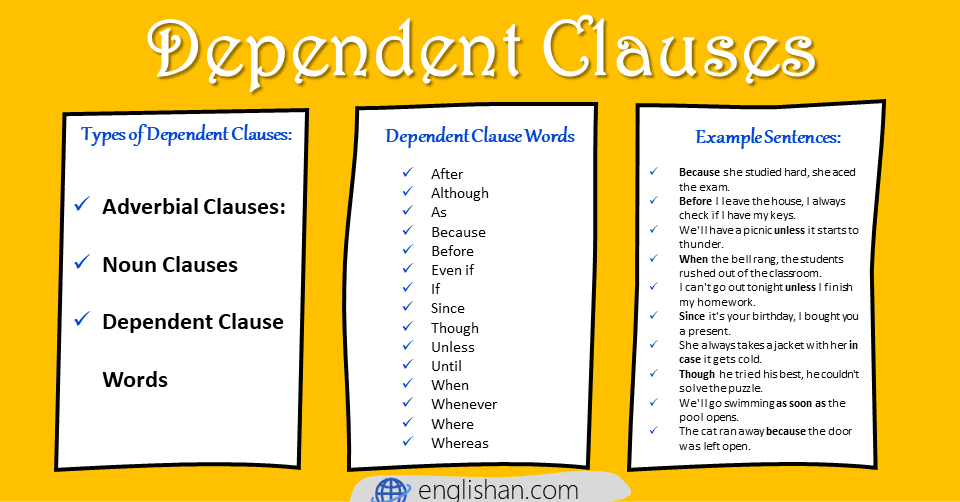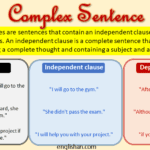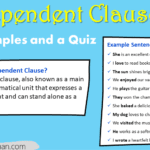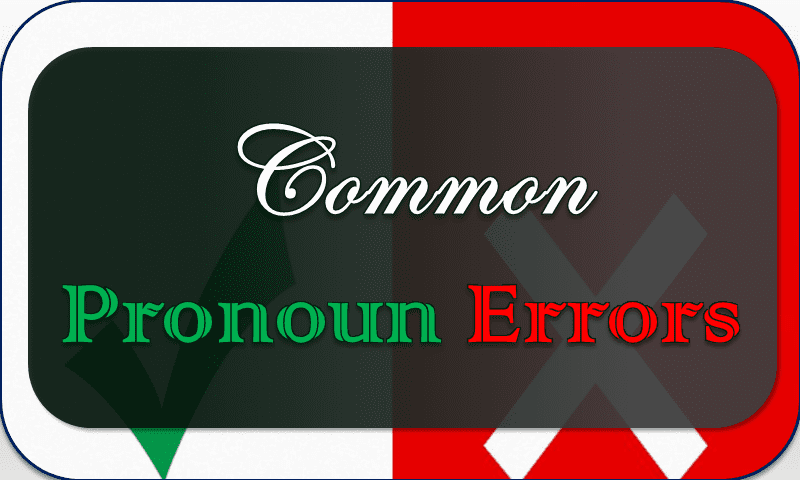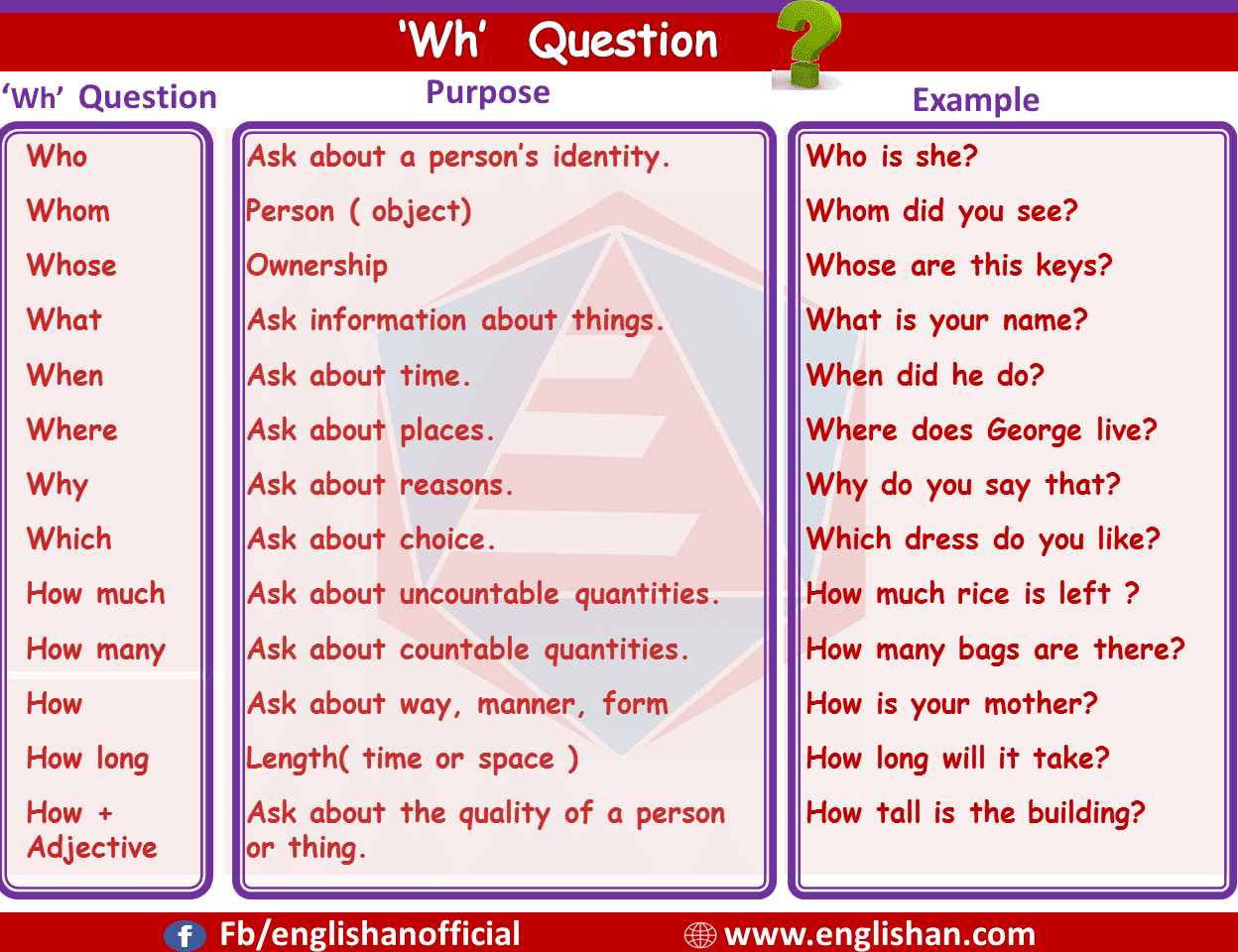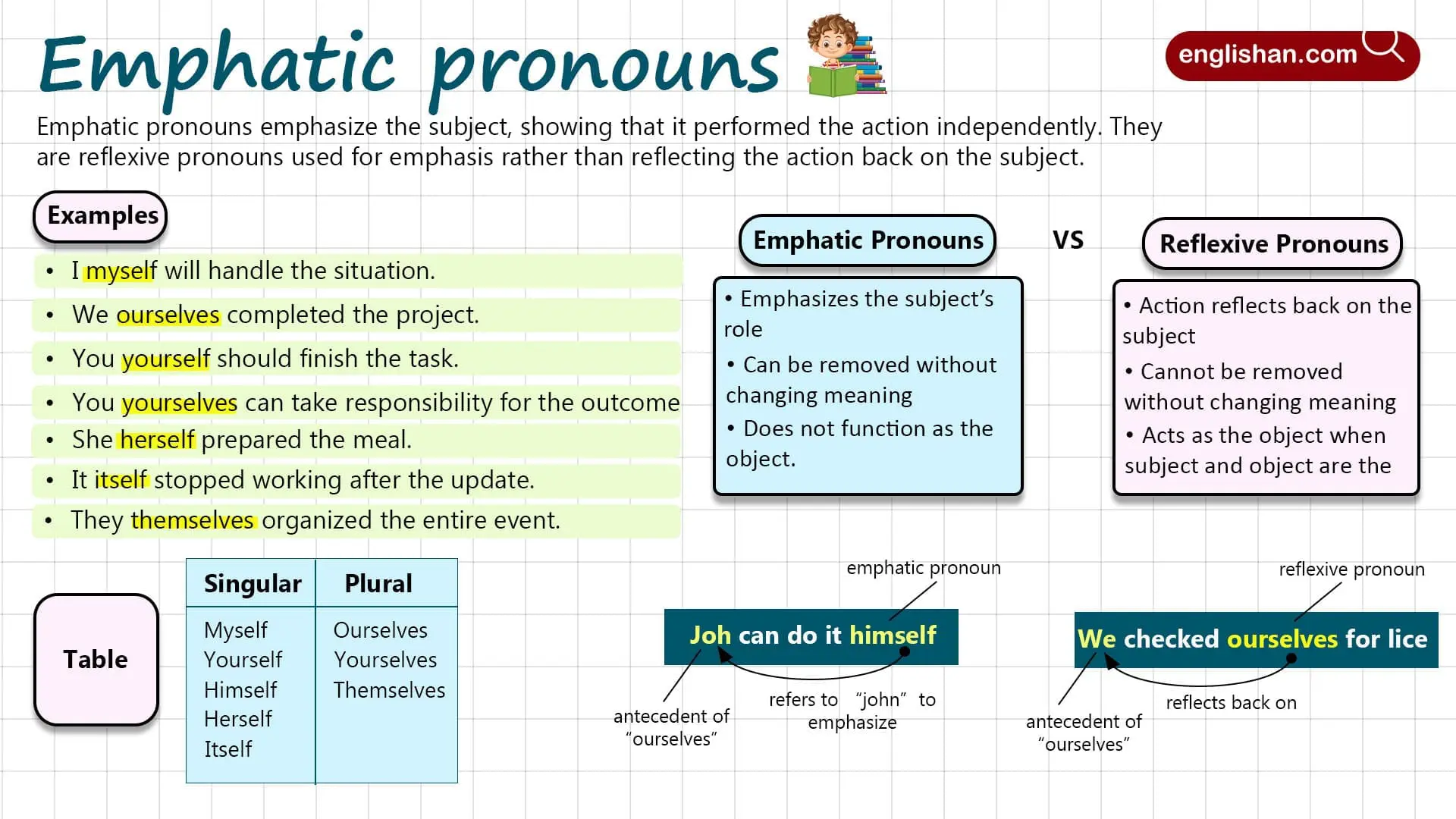A dependent clause, also known as a subordinate clause, is a group of words containing a subject and a verb but cannot stand alone as a complete sentence. They are used to provide additional information to the main clause and must be connected to an independent clause to form a meaningful sentence.
What is a Dependent Clause?
In grammatical terms, a dependent clause is a group of words that includes both a subject and a verb, but it does not express a complete thought. Since it lacks completeness, it cannot stand alone and needs to be connected to an independent clause, which does express a complete thought.
For example:
- When the rain stops (dependent clause)
- We will go outside (independent clause)
When combined, the sentence becomes complete:
- When the rain stops, we will go outside.
Here, When the rain stops is the dependent clause that adds more information to the main idea.
Types of Dependent Clauses
There are three main types of dependent clauses in English grammar: adverbial clauses, adjective clauses, and noun clauses. Each type serves a different purpose in a sentence.
1. Adverbial Clauses
Adverbial clauses act like adverbs in a sentence. They provide information about how, when, where, why, or under what conditions something happens. These clauses typically start with subordinating conjunctions like because, although, since, when, or if.
Example:
- Because she was tired, she went to bed early.
In this sentence, the dependent clause because she was tired explains the reason she went to bed.
2. Adjective Clauses
Adjective clauses function like adjectives, describing or modifying a noun or pronoun in the sentence. They usually begin with relative pronouns such as who, whom, whose, which, or that.
Example:
- The book that you gave me is interesting.
Here, that you gave me is an adjective clause that describes the noun book.
3. Noun Clauses
Noun clauses act as nouns within a sentence. They can function as subjects, objects, or complements. Noun clauses often start with words like that, what, who, whichever, whether, and how.
Example:
- She didn’t know what he meant.
In this sentence, the clause what he meant is a noun clause that functions as the object of the verb knew.
How to Use Dependent Clauses
Dependent clauses provide additional meaning to the main clause but cannot stand on their own. Here’s how to effectively use them:
- At the Beginning of a Sentence: When they come at the start of a sentence, it is followed by a comma.
- If you study hard, you will pass the test.
- At the End of a Sentence: When the dependent clause appears at the end of a sentence, no comma is needed.
- You will pass the test if you study hard.
- In the Middle of a Sentence: Adjective clauses often appear in the middle of sentences, giving more details about a noun.
- The car, which was brand new, broke down after a week.
Examples of Dependent Clauses
| Type of Clause | Dependent Clause | Complete Sentence |
|---|---|---|
| Adverbial | When it started to rain | When it started to rain, we ran inside. |
| Adverbial | Although she was late | Although she was late, she didn’t miss the meeting. |
| Adjective | That I borrowed from you | The book that I borrowed from you is amazing. |
| Adjective | Who won the award | The student who won the award is my friend. |
| Noun | What you said | I didn’t understand what you said. |
| Noun | Whether he will come | We don’t know whether he will come to the party. |
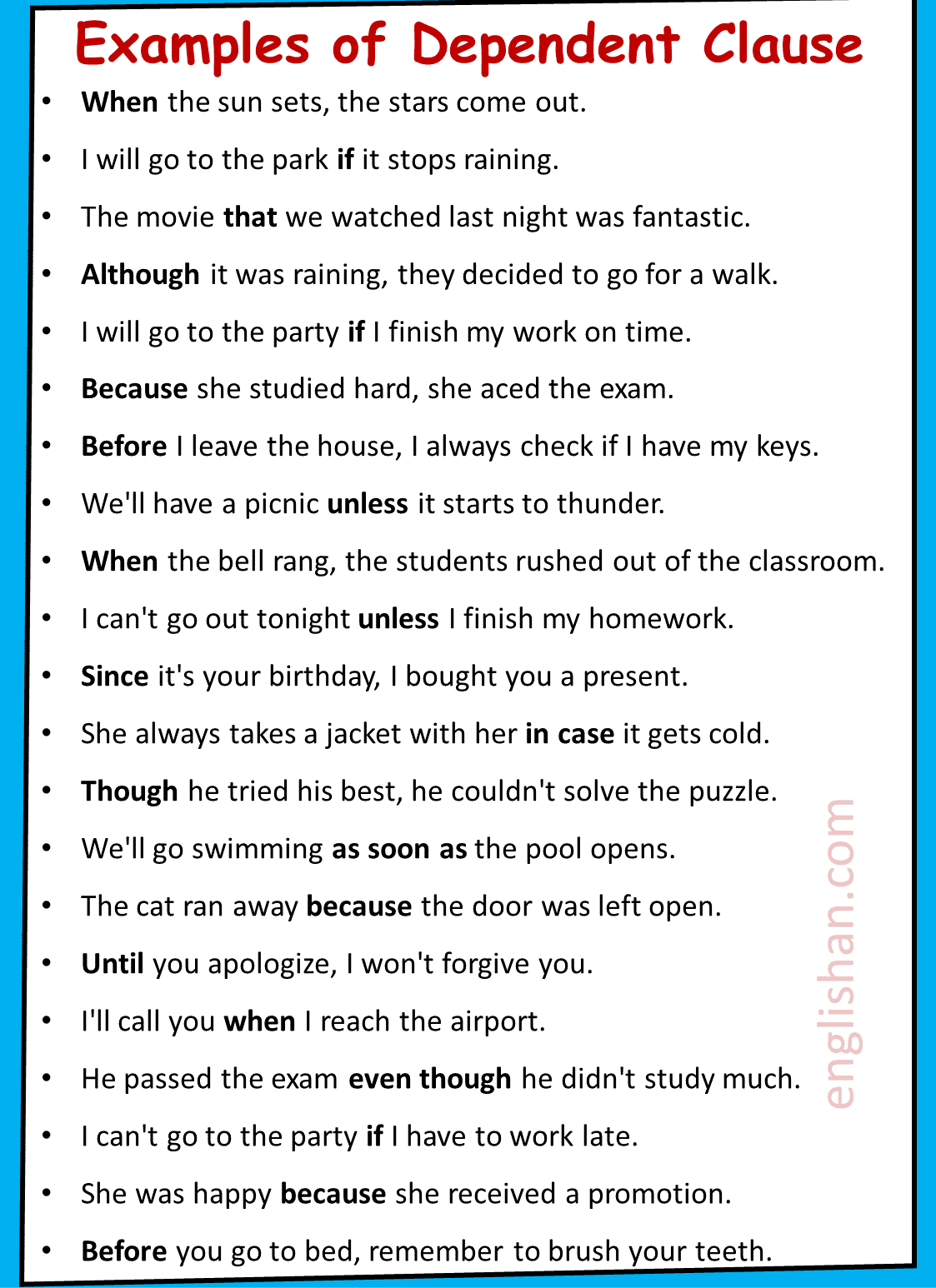
Dependent Clause Words
When writing a dependent clause, various words and phrases can be used to indicate its subordinate nature. These words and phrases are known as subordinating conjunctions and relative pronouns. Here is a list of commonly used words in dependent clauses:
Subordinating Conjunctions
- After
- Although
- As
- Because
- Before
- Even if
- If
- Since
- Though
- Unless
- Until
- When
- Whenever
- Where
- Whereas
- While
Relative Pronouns
- That
- Which
- Who
- Whom
- Whose
- Where
- When
Common Mistakes with Dependent Clauses
Leaving a Dependent Clause Alone: A dependent clause by itself is a fragment and cannot function as a complete sentence.
❌ Because I was tired.
✅ Because I was tired, I went to bed early.
Using the Wrong Conjunction: It’s important to choose the right subordinating conjunction for the meaning you want to convey.
❌ Although it was raining, but we went outside.
✅ Although it was raining, we went outside.
Misplacing Commas: Remember to use a comma when the dependent clause starts the sentence, but avoid using one when it appears at the end.
❌ We will go outside, when the rain stops.
✅ We will go outside when the rain stops.
FAQs:
A dependent clause is a part of a sentence that has a subject and a verb, but it doesn’t make sense by itself.
Example:
Because it was raining (dependent clause, incomplete thought)
Full-sentence: Because it was raining, we stayed inside.
Here’s an example of a dependent clause:
Example: Because it was raining
(This doesn’t make sense alone.)
Full-sentence: Because it was raining, we stayed inside.
(Now it makes sense when connected to the main part of the sentence.)
Here are the 3 types of dependent clauses:
1. Adjective Clause – Describes a noun.
Example: The book that you gave me is great.
2. Adverbial Clause – Tells how, when, where, or why.
Example: I went home because I was tired.
3. Noun Clause – Acts like a noun.
Example: I don’t know what he wants.
Tip: Dependent clauses need a main sentence to make sense!
Here are 5 examples of clauses:
1. Independent Clause: She reads books.
Can stand alone as a sentence.
2. Dependent Clause: Because she was tired.
Needs more information to make sense.
3. Relative Clause: The book that she gave me.
Gives more details about a noun.
4. Adverbial Clause: I will call when I get home.
Describes when something happens.
5. Noun Clause: What she said was important.
Acts as a noun in the sentence.
You May Also Like
